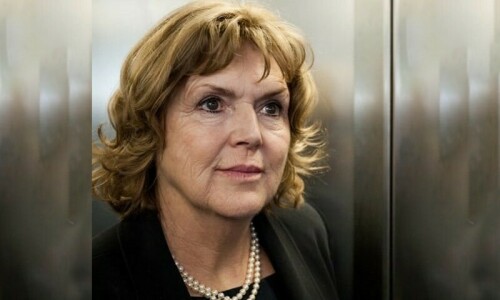UNITED NATIONS: Pakistan ranks 164th on a list of 193 countries on the UN Human Development Index, according to the report released on Wednesday.
This is shows a slight decline from the previous index, when Pakistan was ranked 161st, three rungs above its current ranking.
The report also noted that Pakistan’s HDI rank remained fixed at the 161st place globally from 2019 to 2021.
The indicators are used to create a health index, an education index and an income index, each with a value between 0 and 1.
Sri Lanka, ranked 78th, is the top in South Asia with 0.780 points, followed by Bangladesh at 129th with 0.670 points, while India is 134th with 0.644 points. Nepal is at 146th, and Afghanistan is at the bottom in the region at 182nd with 0.462 points, although it’s slightly above the 10 lowest.
UN Human Development Index says world recovering from post-pandemic slowdown, but gap between rich and poor states widening
Somalia, ranked 193rd with 0.380 points, is last on the list, while Switzerland is number 1 with 0.967 points, followed by Norway with 0.966 points.
The report notes that while the world has returned to pre-pandemic levels of development, the global recovery masks a widening gap between rich and poor countries.
The rebound follows two years of decline, when, in 2021 and 2022, the global Human Development Index (HDI) dipped twice in a row for the first time since its creation nearly 35 years ago, thanks in part to the Covid-19 crisis, rolling back five years of progress.
“After two years of actually reversing in terms of global human development with the pandemic and all its consequences, we have seen a rebound,” head of the UNDP Achim Steiner told AFP.
The 2023 estimate shows metrics in every category — life expectancy, education and standard of living — are projected to exceed their pre-2019 values, although lingering effects of the pandemic and the war in Ukraine have blunted the trajectory somewhat.
But the overall good news hides a growing divide between wealthy and poor countries.
The report, which covers the progress made in 2023, finds that uneven development progress is leaving the poorest behind, exacerbating inequality, and stoking political polarisation globally.
“The result is a dangerous gridlock that must be urgently tackled through collective action,” the United Nations warned in a tweet.
The report also acknowledged that “rich countries experienced unprecedented development, yet half of the world’s poorest nations continue to languish.”
The United Nations’ Human Development Index (HDI) seeks to quantify a country’s level of prosperity based on both economic and non-economic factors. Non-economic factors include life expectancy and educational attainment. Economic factors are measured by gross national income (GNI) per capita.
The United States records an HDI of 0.921 as per recent data, signifying a high level of human development. While this is a respectable score, it is important to explore the broader context by featuring top global performers and investigating the index’s key components in detail.
Five countries — Switzerland, Norway, Iceland (0.959), Hong Kong (0.956), and Denmark (0.952) — stand at the pinnacle of the HDI chart with soaring figures. Indicating an optimal balance of economic prosperity, educational attainment, and healthy life expectancy, they set the bar high for global development aspirations.
The United States isn’t in the top ten, indicating there’s still room for enhancement, particularly in aspects such as health and education.
“The widening human development gap revealed by the report shows that the two-decade trend of steadily reducing inequalities between wealthy and poor nations is now in reverse,” Mr Steiner said.
“Despite our deeply interconnected global societies, we are falling short. We must leverage our interdependence as well as our capacities to address our shared and existential challenges and ensure people’s aspirations are met,” he added, noting a significant human toll behind the statistics.
“The failure of collective action to advance action on climate change, digitalisation, or poverty and inequality not only hinders human development but also worsens polarization and further erodes trust in people and institutions worldwide.”
The report also identified an emerging “democracy paradox”, with most of those surveyed expressing support for democracy but also endorsing leaders who may undermine democratic principles.
This paradox, coupled with a sense of powerlessness and a lack of control over government decisions, has fueled political polarization and inward-looking policy approaches.
Correction: An earlier version of this story mistakenly reported that Pakistan’s HDI ranking had improved slightly. The error is regretted.
Published in Dawn, March 14th, 2024
















































Dear visitor, the comments section is undergoing an overhaul and will return soon.